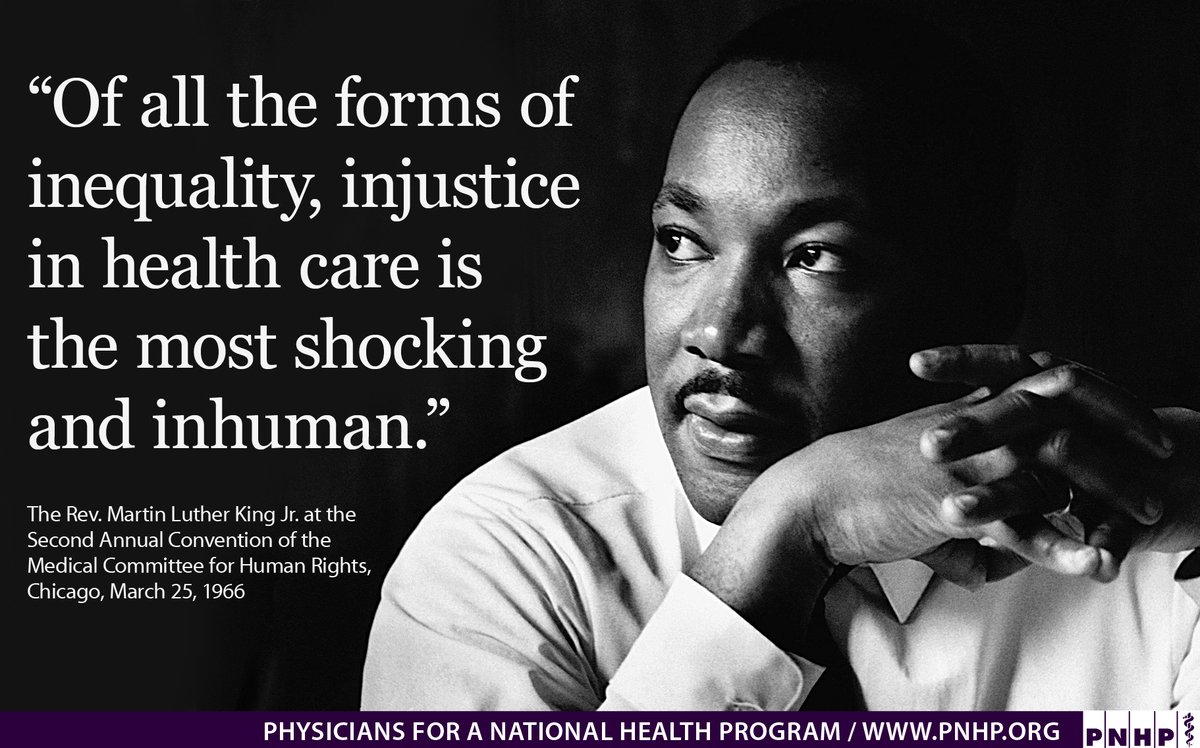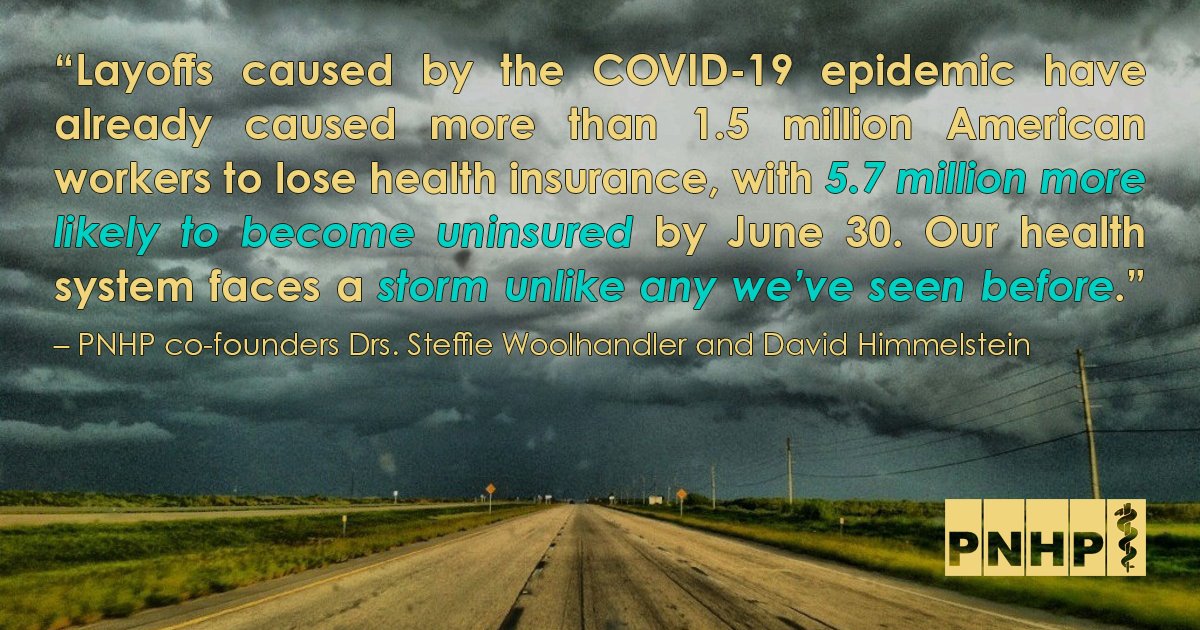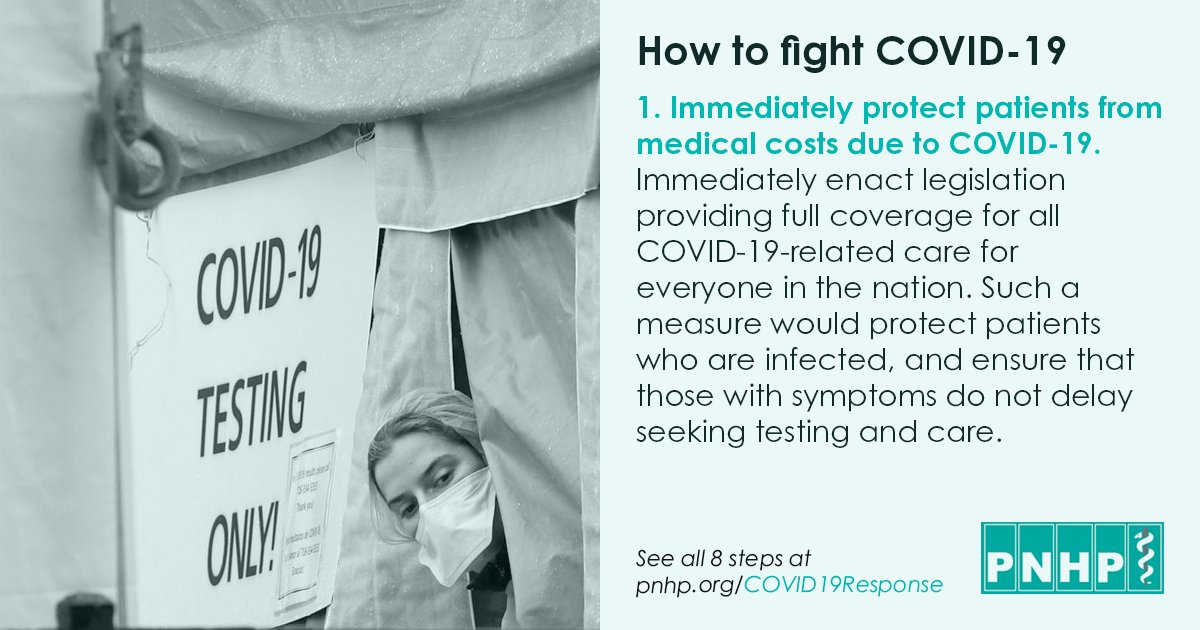BREAKING: @RepJayapal and @SenWarren highlight the troubling history of organizations that are poised to play an even bigger role in Medicare come January.
#StopREACH #StopDCEs
#StopREACH #StopDCEs
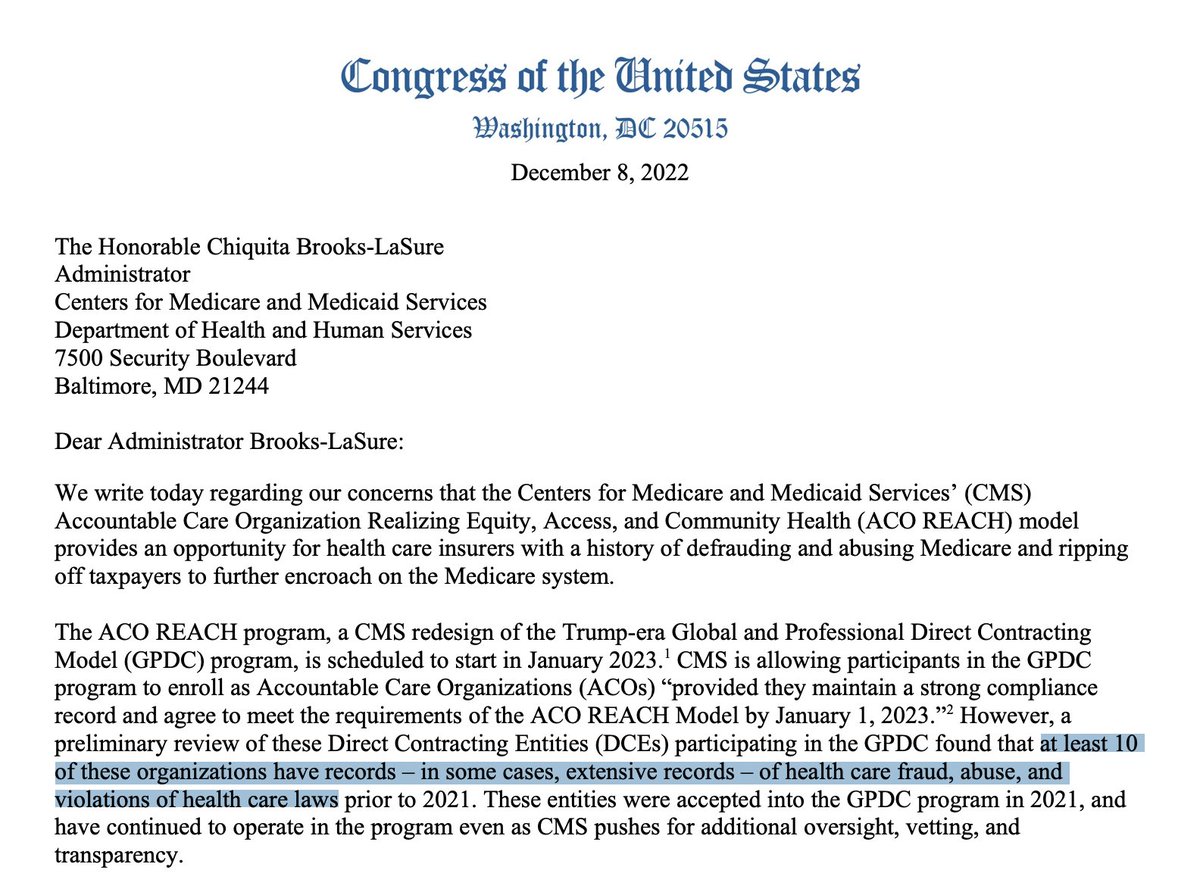
Given the history of @Centene, why have they been invited to administer Medicare benefits through the REACH program? 

Given the history of @SutterHealth, why have they been invited to administer Medicare benefits through the REACH program? 

Given the history of @CloverHealth, why have they been invited to administer Medicare benefits through the REACH program? 

Given the history of @AdventHealth, why have they been invited to administer Medicare benefits through the REACH program? 

Given the history of @Humana, why have they been invited to administer Medicare benefits through the REACH program? 

Given the history of @VivelyHealth, why have they been invited to administer Medicare benefits through the REACH program? 

Given the history of @MyBrightHealth, why have they been invited to administer Medicare benefits through the REACH program? 

Given the history of @nivanohc, why have they been invited to administer Medicare benefits through the REACH program? 

Given the history of @Cigna, why have they been invited to administer Medicare benefits through the REACH program? 

Shouldn’t a record of lawsuits, large settlements, and consumer complaints prevent @CMSGov from rewarding these same companies with ACO-REACH contracts?
Shouldn’t these patterns make us rethink the role of commercial health insurers in Medicare, period?
Shouldn’t these patterns make us rethink the role of commercial health insurers in Medicare, period?
Full letter here: warren.senate.gov/imo/media/doc/…
Thank you to Senate cosigners @SenBooker & @SenSanders.
Thank you to Senate cosigners @SenBooker & @SenSanders.
Thank you to House cosigners @RepBowman, @RepCori, @RepCarbajal, @RepPeterDeFazio, @rosadelauro, @RepDebDingell, @RepLloydDoggett, @RepRaulGrijalva, @RepMcGovern, @RepMarieNewman, @RepAOC, @RepMarkPocan, @RepKatiePorter, @RepPressley, @RepSchakowsky, @RepMarkTakano & @RepRashida.
P.S. Looking for more info on Direct Contracting and REACH? Check out ProtectMedicare.net. 
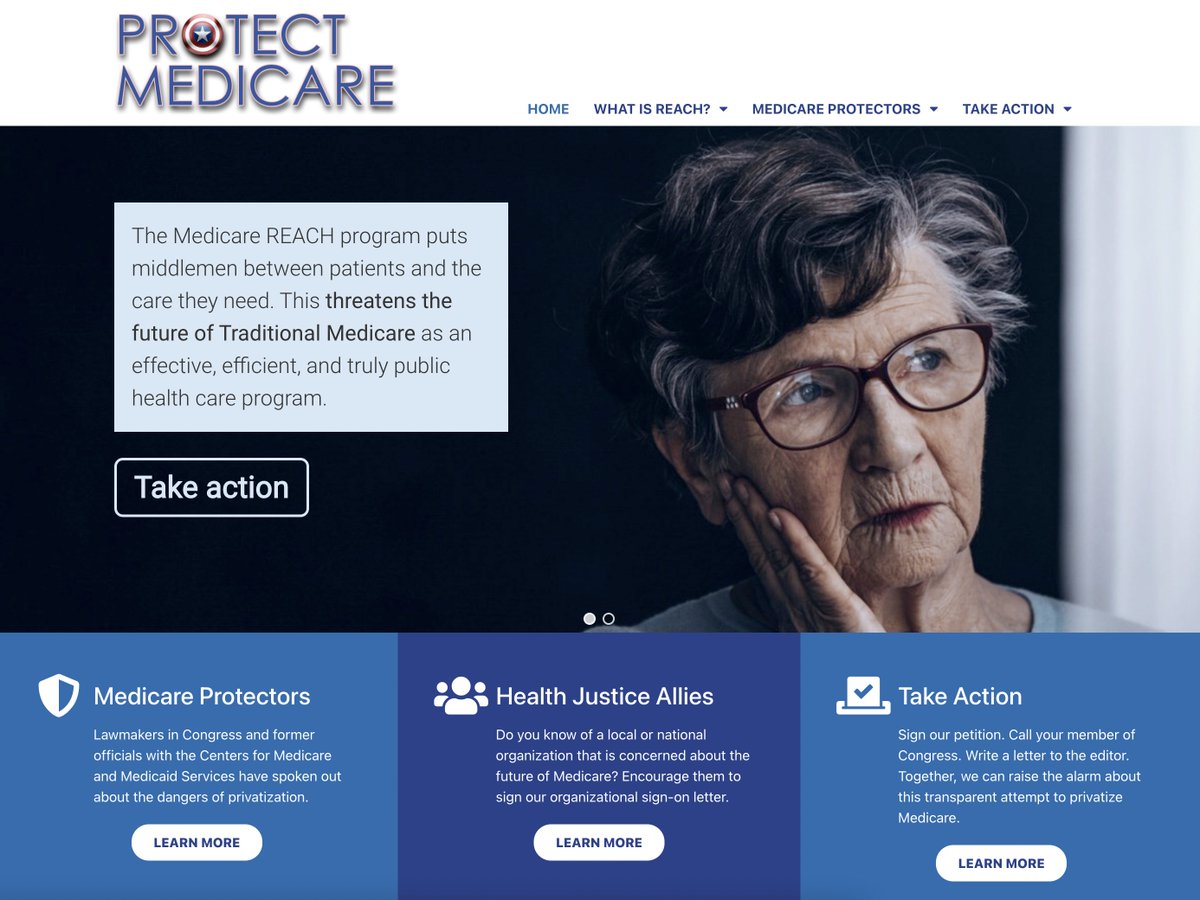
• • •
Missing some Tweet in this thread? You can try to
force a refresh





